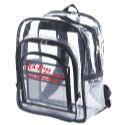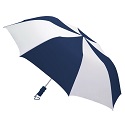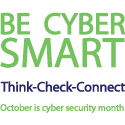Unique Glossary of Terms
Printing Methods and Industry Termology.
The promotional products industry has its own unique glossary of terms, . Since the nature of our business is to primarily sell "decorated" products, this maybe helpful to better understand the imprinting and decorating terms used by our factories. Greater knowledge helps improve production time on every order! Here are some of the most frequently used terms that apply to promotional products.
Decorating Terms:
Debossing: depressing an image into a material?s surface so that the image sits below the product surface
Embossing: impressing an image in relief to achieve a raised surface
Hot Stamp: setting a design on a relief die, which is then heated and pressed onto the printing surface
Laser or Foil Stamp: applying metallic or colored foil imprints to vinyl, leather or paper surfaces
Personalization: imprinting an item with a person's name using one of several methods such as mechanical engraving, laser engraving, hot stamping, debossing, sublimation, or screen printing, to name a few.
Die-casting: injecting molten metal into the cavity of a carved die (a mold)
Die-striking: producing emblems and other flat promotional products by striking a blank metal sheet with a hammer that holds the die
Etching: using a process in which an image is first covered with a protective coating that resists acid, then exposed, leaving bare metal and protected metal. The acid attacks only the exposed metal, leaving the image etched onto the surface.
Engraving: cutting an image into metal, wood or glass by one of three methods--computerized engraving, hand tracing, or hand engraving.
Pantone Matching System (PMS)A book of standardized color in a fan format used to identify, match and communicate colors in order to produce accurate color matches in printing. Each color has a coded number indicating instructions for mixing inks to achieve that color.
Colorfill: screen printing an image and then debossing it onto the vinyl's surface
Embroidery: stitching a design into fabric through the use of high-speed, computer-controlled sewing machines. Artwork must first be "digitized," which is the specialized process of converting two-dimensional artwork into stitches or thread. A particular format of art such as a jpeg, tif, eps, or bmp, cannot be converted into an embroidery tape. The digitizer must actually recreate the artwork using stitches. Then it programs the sewing machine to sew a specific design, in a specific color, with a specific type of stitch. This is the process known as digitizing.
Printing Terms:
Screen Printing: an image is transferred to the printed surface by ink, which is pressed through a stenciled screen and treated with a light-sensitive emulsion. Film positives are put in contact with the screens and exposed to light, hardening the emulsion not covered by film and leaving a soft area on the screen for the squeegee to press ink through. (Also called silk screening)
Pad Printing: a recessed surface is covered with ink. The plate is wiped clean, leaving ink in the recessed areas. A silicone pad is then pressed against the plate, pulling the ink out of the recesses, and pressing it directly onto the product.
4-color Process: a system where a color image is separated into 4 different color values by the use of filters and screens (usually done digitally). The result is a color separation of 4 images, that when transferred to printing plates and printed on a printing press with the colored inks cyan (blue), magenta (red), yellow and black, reproduces the original color image. These four colors can be combined to create thousands of colors.
Camera-ready: artwork that is black and white and has very clean, crisp lines that make it easy to scan and suitable for photographic reproduction.
Bleeds: we cannot print right to the edge of a paper sheet. To create that effect, the we must use a sheet, which is larger than the document size. Then the we print beyond the edge of the document size (usually 1/8), then we cuts the paper down to the document size.
Imprint Area: the area on a product, with specific dimensions, in which the imprint is placed.
Artwork Terms:
Mechanical artwork: the traditional standard for acceptable mechanical artwork that is camera-ready black and white material
Electronic/Digital artwork:
Vector files: sometimes called a geometric file, most images created with tools such as Adobe Illustrator and CorelDraw are in the form of vector image files. Vector image files are easier to modify than raster image files (which can, however, sometimes be reconverted to vector files for further refinement)
Bitmap files: images are exactly what their name says they are: a collection of bits that form an image. The image consists of a matrix of individual dots (or pixels) that all have their own color (described using bits, the smallest possible units of information for a computer).
Page Layout Documents: the font files and document preferences that need to be supplied for use on the operating system.
Metafile: a collection of structures that store a picture in a device- independent format. Device independence is the one feature that sets metafiles apart from bitmaps. Unlike a bitmap, a metafile guarantees device independence. There is a drawback to metafiles, because they are generally drawn more slowly than bitmaps. Therefore, if an application requires fast drawing and device independence is not an issue, it should use bitmaps instead of metafiles.
Adobe® Portable Document Format (PDF) files: preserve the visually rich content of original files, and are easier to read than HTML content that appears in a Web browser. Adobe PDF files print cleanly and quickly, and anyone can share Adobe PDF files, regardless of their platform or software application.
TIFF (Tagged Image File Format) file: a file format for exchanging bitmapped images (usually scans) between applications.
EPS (encapsulated postscript) file: an alternative picture file format that allows PostScript data to be stored and edited and is easy to transfer between Macintosh, MSDOS and other systems.
PostScript: a computer description language that allows a programmer to create complex pages using a series of commands.
Industry Terms:
Email proof: Impression of type or artwork on paper so the correctness and quality of the material to be printed can be checked.
Pre-production Proof: an actual physical sample of the product itself produced and sent for approval before an order goes into production.
Drop Shipment: an order shipped to more than one location will be charged a fee for each additional destination. Less than Minimum: the fee charged by a supplier for ordering 50% fewer items than the quantity listed in the minimum or first column. This option is not always available on all products. Most times we require a minimum to be sent to each drop ship location.
Production Time: the amount of time needed to produce and ship an order, once an order has been received and approved. Stock products with a one-color imprint usually ship within 10 working days. Custom products and those with multi-color imprints require longer production time.
Overruns/Underruns: the number of pieces that were printed in excess of the quantity specified/ the production run of fewer pieces than the amount specified. The industry standard on most products is +5%, with the exception being on paper and plastic bags. They can range from +10 to +25%. We bill on the actual quantity shipped.
Set-up Charge: a fee charged on all products. Prices vary per product.
Copy Change: a fee charged for changing the imprint copy on a product either at time of the original proof approval or upon a re-order.
Exact Rerun: There are products with repeat set-up charge on exact reruns of an order. The reorder set up charge maybe lower than the initial order. Please check with us on the specific product on reorders set up fees.
Contact us with any questions





